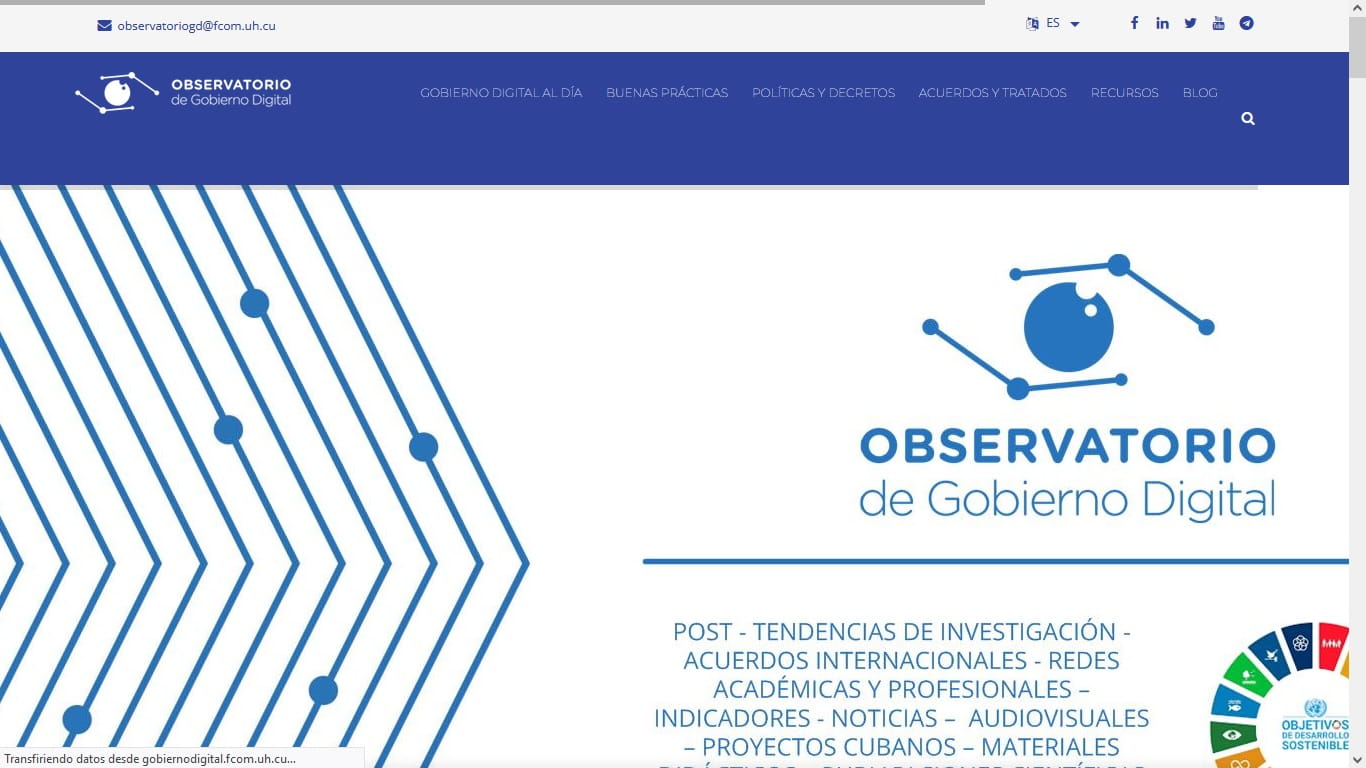
Capital experiences: What is the Digital Government Observatory?
By: Elena Godinez Dalmau
https://gobiernodigital.fcom.uh.cu/es/inicio
We approach good practices in digital communication today in the Portal del Ciudadano de La Habana in the experience of the Digital Government Observatory, a project conceived from the Faculty of Communication of the University of Havana.
What is the Digital Government Observatory?
It is a scientific platform with a social and collaborative approach, whose essential objective is to accompany the development of digital government in Cuba. For this, it offers truthful and timely information on the progress of digital transformation in our country; and socializes the different trends and good practices both nationally and internationally. It is our purpose to contribute to raising the digital culture in the country.
Who compose them?
We are an inter-institutional network that unites the efforts and knowledge of various entities such as the Electronic Government Expert Group, the Computerization Directorate of the Ministry of Communications, the Electronic Government Center and the SEO WebMas Monitor of the UCI, the Cuban Law Society and Information Technology, the Directorate for the improvement of systems of management bodies of the Council of Ministers and the Department of Business Information Technology of the Faculty of Industrial Engineering of the Technological University of Havana.
Our team is made up of researchers, teachers, specialists and students from various disciplines, including Information Sciences, Computer Science, Social Communication and Design.
How can municipal and provincial governments acquire digital government tools through this platform?
Through our web portal "www.gobiernodigital.fcom.uh.cu" you can access various information and learning spaces that account for different resources that range from current regulations, the main agreements to which Cuba is a part, projects national and international, didactic methods, educational capsules, events, links to other institutions that deal with the subject, even articles and scientific publications.
They can also approach us and request advice and collaboration, and inquire about our products and services.
What are your main ways of socializing (Web, networks)?
Our website and our blog are spaces where we share the results of our work, and also on our profile on the social networks Facebook, Twitter, Telegram and LinkedIn.
Why is it important to build a coherent discourse on digital government?
The ultimate objective of digital government is none other than to significantly improve the quality of life of citizens, hence the relationship and communication with these citizens must be marked by a genuine, contemporary and empathic discourse. To the extent that we are capable of addressing the issue with codes that bring us closer to the citizenry, to their concerns and expectations; where their needs, their realities, their daily life are reflected; We will then be in a better position to achieve an accurate social impact and a true digital transformation. To that same extent we will achieve a more legitimate and spontaneous citizen participation, and therefore a collective construction of the nation to which we aspire.
When does the Observatory arise?
We started our first activities in October 2020, as part of the Center for Digital Government Studies, based in the Faculty of Communication of the University of Havana.
Have you already carried out accompaniment to capital governments?
To date, we have begun only monitoring the municipal portals of the province, based on the indicators that will allow us to measure the pulse of the state of the government and the digital transformation in Cuba. We are also participating in some projects with the Provincial Government of Havana to collaborate with the Digital Government strategy of the capital.